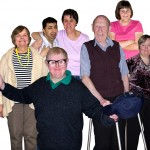
Considering the issues relating to consent to participate in research will apply to people with learning disabilities in the same way as to any other ‘human subjects’ , but they are often excluded from research on the basis that researchers perceive ‘learning disability’ as an automatic exclusion criterion, assuming this means lack of capacity to [read the full story…]





